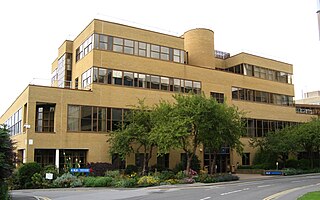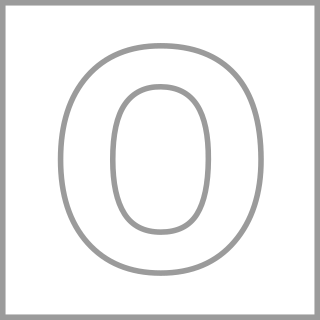In the United Kingdom, the General Certificate of Secondary Education (GCSE) is an academic qualification, generally taken in a number of subjects by pupils in secondary education in England, Wales and Northern Ireland. State education in Scotland does not use GCSEs, instead its Scottish Qualifications Certificate operates National / Intermediate exams at the equivalent level, however, certain private schools in Scotland offer GCSEs, and the proportion of Scottish pupils taking GCSEs to facilitate admission to English universities is increasing.
The Leaving Certificate Examination, which is commonly referred to as the Leaving Cert, is the university matriculation examination in the Republic of Ireland and the final exam of the Irish secondary school system. It takes a minimum of two years preparation, but an optional Transition Year means that for those students it takes place three years after the Junior Certificate Examination. These years are referred to collectively as "The Senior Cycle." Most students taking the examination are aged 16–20; in excess of eighty percent of this group undertake the exam. The Examination is overseen by the State Examinations Commission. The Leaving Certificate Examinations are taken annually by approximately 55,000 students.
The General Certificate of Education (GCE) is a subject-specific family of academic qualifications that awarding bodies in England, Wales, Northern Ireland, Crown dependencies and a few Commonwealth countries, notably Sri Lanka, Pakistan, Malaysia and Singapore, confer on students..

The baccalauréat, often known in France colloquially as bac, is an academic qualification that French students are required to take to graduate high school. Introduced by Napoleon I in 1808, it is the main diploma that is required to pursue university studies.
In the Scottish secondary education system, the Higher is one of the national school-leaving certificate exams and university entrance qualifications of the Scottish Qualifications Certificate (SQC) offered by the Scottish Qualifications Authority. It superseded the old Higher Grade on the Scottish Certificate of Education (SCE). Both are normally referred to simply as "Highers".

The Assessment and Qualifications Alliance(AQA) is an awarding body in England, Wales and Northern Ireland. It compiles specifications and holds examinations in various subjects at GCSE, AS and A Level and offers vocational qualifications. AQA is a registered charity and independent of the government. However, its qualifications and exam syllabi are regulated by the Government of the United Kingdom, which is the regulator for the public examinations system in England and Wales.
Music examinations are a method of formally assessing the accomplishments of pupils learning musical instruments. These are called grades.

The ABRSM is an examinations board and registered charity based in London, UK, which provides examinations in music at centres around the world. ABRSM is one of four examination boards accredited by Ofqual to award graded exams and diploma qualifications in music within the UK's National Qualifications Framework. 'The Associated Board of the Royal Schools of Music' was established in 1889 and rebranded as ABRSM in 2009. The clarifying strapline "the exam board of the Royal Schools of Music" was introduced in 2012.
The International General Certificate of Secondary Education is an English language based examination similar to GCSE and is recognized in the UK as being equivalent to the GCSE for the purposes of recognizing prior attainment. It was developed by University of Cambridge International Examinations. The examination board Edexcel and OxfordAQA also offer its own versions of International GCSE's. Most Students begin learning the syllabus at the beginning of Year 10 and take the test at the end of Year 11. Unlike pre-2017 GCSE, coursework of any kind is not a compulsory component.
Further Mathematics is the title given to a number of advanced secondary mathematics courses. Higher and Further Mathematics may also refer to any of several advanced mathematics courses at many institutions.
Curriculum 2000 was a reform of A Level examinations in the United Kingdom. It was introduced in September 2000. An A Level under this reform consists of four or six units studied over two years. Normally, two or three units are assessed at the end of the first year, and make up a stand-alone Advanced Subsidiary qualification. Another two or three modules are assessed at the end of the second year, which make up the A2 Level. A2 units do not form a qualification in their own right; the satisfactory completion of the AS and A2 units in the same subject is required to constitute a complete A Level qualification.
Free-standing Mathematics Qualifications (FSMQ) are a suite of mathematical qualifications available at levels 1 to 3 in the National Qualifications Framework – Foundation, Intermediate and Advanced.
London College of Music Examinations is an examinations board offering graded and diploma qualifications in music, and in drama & communication. The board is a department of the London College of Music (LCM), a school within the University of West London.

The A Level is a subject-based qualification conferred as part of the General Certificate of Education, as well as a school leaving qualification offered by the educational bodies in the United Kingdom and the educational authorities of British Crown dependencies to students completing secondary or pre-university education. A number of countries, including Singapore, Kenya, Mauritius and Zimbabwe have developed qualifications with the same name as and a similar format to the British A Levels. Obtaining an A Level, or equivalent qualifications, is generally required for university entrance, with universities granting offers based on grades achieved.
Advanced Level (A-Level) Mathematics is a qualification of further education taken in the United Kingdom and occasionally in other countries as well. In the UK A-Level exams are traditionally taken by 17-18 year-olds after a two-year course at a sixth form or college. Advanced Level Further Mathematics is often taken by students who wish to study a mathematics based degree at university.

The Office of Qualifications and Examinations Regulation (Ofqual) is a non-ministerial government department that regulates qualifications, exams and tests in England and, until May 2016, vocational qualifications in Northern Ireland. Colloquially and publicly, Ofqual is often referred to as the exam "watchdog".
The General Certificate of Education (GCE) Advanced Level, or A Level, is a main school leaving qualification in England, Wales, Northern Ireland, the Channel Islands and the Isle of Man. It is available as an alternative qualification in other countries.
The Entry Level Certificate (ELC) is a qualification offered in England, Wales and Northern Ireland. It lies at Entry Level of the National Qualifications Framework, pitching it just below GCSE level.

A high school diploma is a North American academic school leaving qualification awarded upon high school graduation. The high school diploma is typically studied for over the course of four years, from Grade 9 to Grade 12. The diploma is typically awarded by the school in accordance with the requirements of the local state or provincial government. Requirements for earning the diploma vary by jurisdiction, and there may be different requirements for different streams or levels of high school graduation. Typically they include a combination of selected coursework meeting specified criteria for a particular stream and acceptable passing grades earned on the state exit examination.

Botswana Examinations Council are a provider of national qualifications, offering examinations and qualifications to schools of Botswana.







